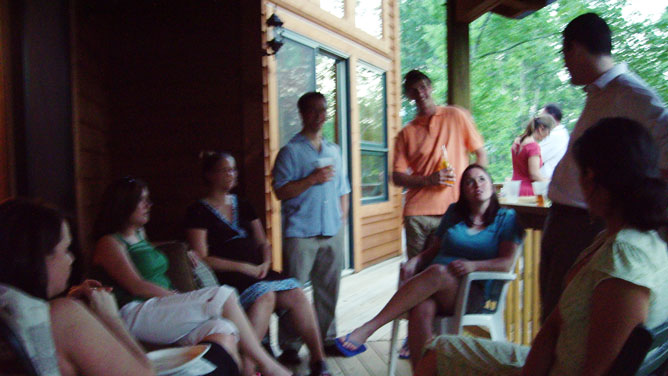The hard parts of understanding English conversation

This week, I met up with the blogger Adir Ferreira from Transparent Language Brazil. He was on his first trip to the U.S. and came to New York for a few days.
In our conversation, Adir mentioned that this was his first immersion experience in English. Although he had studied English for many years and even worked with English speakers, it was still a new experience to be fully immersed.
Adir told me about a party that he had gone to a few days earlier. He said that some of the conversation there was really hard to follow because people were using a lot of names of specific things, like the names of local supermarkets and neighborhoods in that city.
I immediately knew what he meant because I've run into that problem in my language study. We spend so much time preparing our general language skills, but a huge amount of conversation is made up of things like:
- people's names
- names of cities, towns, and neighborhoods
- brand names
- names of different types of food
- industry-specific terms
- references to famous movie quotes, songs, historical figures, etc.
- comments on current news stories
This made me think about other things that make natural conversations hard to follow, whether you're fluent in English or not. One is pronouns like "He", "she", "it", "that", and so on. If you don't know what each pronoun refers to, it's really hard to follow the meaning of a conversation.
Another problem is volume. Normal conversations often take place in noisy environments, like in a car, in a busy restaurant, and so on. People usually speak just loud enough to be heard above the noise. When you listen to your native language, you "fill in the gaps" of words that you can't hear clearly. But language learners have a harder time understanding conversations that aren't loud enough.
These are the hard parts of understanding spoken English. I don't know of any way to practice these skills except for having real conversations with English speakers. But maybe there are some clever ways to improve. Do you have any strategies to share?
Print this Article


